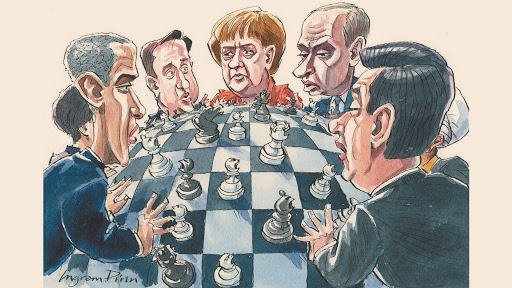
Grand strategy is in vogue, in both academic and in policy circles. In the scholarly world, centres for the study of grand strategy are multiplying. Commentators and academics frequently debate how and if states should pursue a ‘grand strategy’, whilst businesses and nations prioritise thinking ‘strategically’. Grand strategy is also seen as linked to a state’s perceptions of how to create security for itself and how to navigate the conflict-prone international system. But what does ‘grand strategy’ actually entail? How is grand strategy helpful? Why is it difficult to implement? Grand strategy is all about how a state defines its goals and how it allocates resources to pursue them. Grand strategy is inherently ‘big picture’ and focuses on the long-term advancement of the national interest, by employing multiple and diverse tools of statecraft to pursue a delineated objective. Thus, this course covers diverse tools and forms of statecraft – spanning warfare, diplomacy and more – and measures their effectiveness. We will examine case studies in the global north and south alike: from the rise of ‘great powers’ such as the US and China to small states, declining powers and non-state actors, in different historical periods. As such, it is a thematic course centred around grand strategy as a concept, rather than one specific case study or country.
- Teacher: Ladislav Beneš
- Teacher: Rob Geist Pinfold
- Teacher: Robert Geist Pinfold
- Teacher: Irena Kalhousová